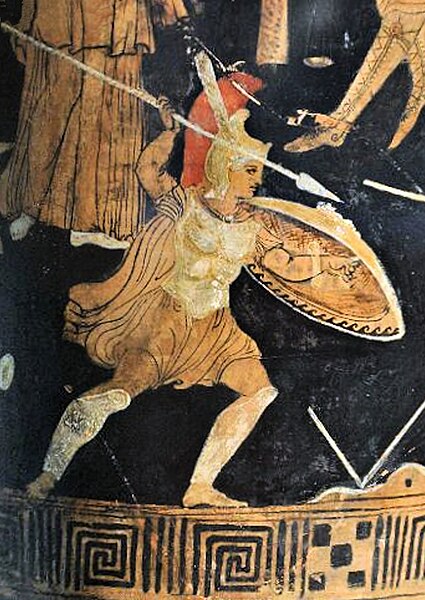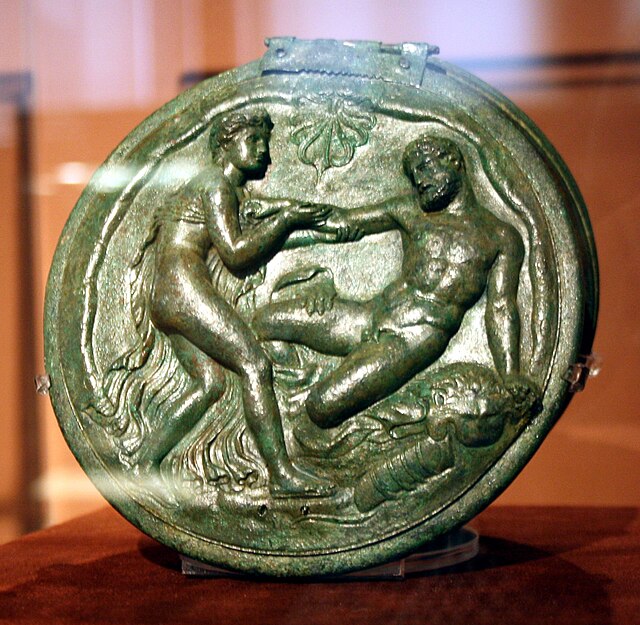In Greek mythology, Telephus was the son of Heracles and Auge, who was the daughter of king Aleus of Tegea. He was adopted by Teuthras, the king of Mysia, in Asia Minor, whom he succeeded as king. Telephus was wounded by Achilles when the Achaeans came to his kingdom on their way to sack Troy and bring Helen back to Sparta, and later healed by Achilles. He was the father of Eurypylus, who fought alongside the Trojans against the Greeks in the Trojan War. Telephus' story was popular in ancient Greek and Roman iconography and tragedy. Telephus' name and mythology were possibly derived from the Hittite god Telepinu.
Heracles with the infant Telephus and deer, mid second century AD. Paris, Louvre MA 75.
Heracles finds Telephus suckled by a deer, with Arkadia, Pan and a winged Virgo looking on, first century AD. Naples, National Archaeological Museum 9008.
Marble statue of Hercules holding baby Telephus in his arms. Ancient Roman copy from a Greek original of 4th century BC. Found in the 16th century in Campo de’ Fiori in Rome. it:Museo Chiaramonti, the Vatican
Achilles; ancient Greek polychromatic pottery painting (dating to c. 300 BC)
In Greek mythology, Auge was the daughter of Aleus the king of Tegea in Arcadia, and the virgin priestess of Athena Alea. She was also the mother of the hero Telephus by Heracles.
Auge and a drunken Heracles, bronze mirror case from Elis (c. 325 BC). National Archaeological Museum, Athens, Stathatos 312.
Heracles and Auge, antique fresco in Pompeii
Carpenters building a boat in which to send Auge into the sea. Part of Pergamon altar
Ancient tondo depicting Heracles grabbing Auge, 2nd century BC, from Arcadia.








